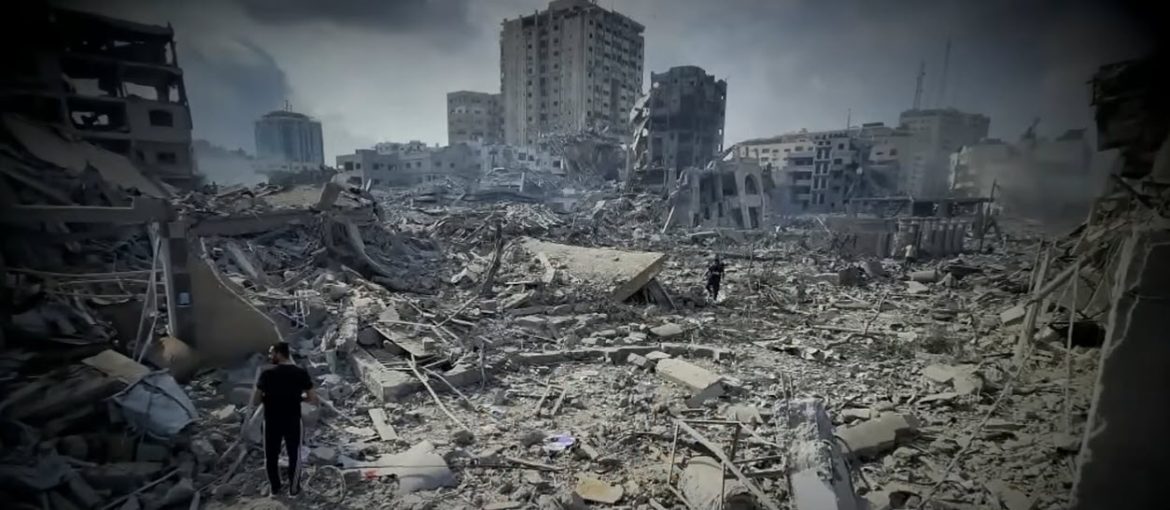Tensions in the Middle East have reached a critical juncture as Israel has issued an order for one million civilians to evacuate northern Gaza, raising concerns of an imminent ground assault. The move follows days of escalating conflict between Israel and Hamas, with both sides engaging in tit-for-tat attacks. As Israel masses over 300,000 reservists and deploys armored divisions near the Gaza border, there are growing fears of Hezbollah militants on Israel’s northern border in Lebanon joining the fray. The situation has intensified since the onset of the Israel-Hamas war, triggered by the killing of Israeli citizens and soldiers and the hostage-taking of at least 150 individuals, including some Americans, by Hamas militants on October 7th.
The Israeli government’s decision to order the evacuation of one million civilians from northern Gaza marks a significant escalation in the conflict. The move suggests that Israel is preparing for a potential ground assault in the region, a development that could have far-reaching consequences for the ongoing Israel-Hamas war. The order raises concerns about the safety of civilians caught in the crossfire and the intensification of hostilities in the already volatile region.
In response to Israel’s evacuation order, Hamas, the Palestinian militant group governing Gaza, has urged Gazans to ignore the warning. Despite this call for resistance, many residents of Gaza City have been observed packing their belongings and leaving the area, indicating the gravity of the situation and the genuine fear of an impending ground offensive.
The deployment of over 300,000 Israeli reservists and the positioning of armored divisions near the Gaza border have fueled concerns about the potential involvement of Iran-backed Hezbollah militants stationed on Israel’s northern border in Lebanon. The specter of a two-front conflict with both Hamas in Gaza and Hezbollah in Lebanon raises the stakes and underscores the broader regional implications of the ongoing hostilities.
The current wave of conflict between Israel and Hamas traces its roots back to October 7th when Hamas militants killed Israeli citizens and soldiers, taking at least 150 hostages, including Americans. This act of aggression triggered a swift and robust response from Israel, leading to a series of escalating exchanges that have now brought the situation to a critical juncture.
As tensions escalate, international actors express deep concerns about the potential humanitarian crisis and the risk of a wider regional conflict. Diplomatic efforts to de-escalate the situation are underway, with calls for restraint and dialogue. The United Nations and various nations have urged both Israel and Hamas to prioritize the safety of civilians and seek peaceful solutions to the ongoing crisis.
The evacuation order for one million civilians in northern Gaza signals a dangerous escalation in the Israel-Hamas conflict, raising fears of an imminent ground assault. With Israel massing troops near the Gaza border and the specter of Hezbollah involvement on Israel’s northern border, the situation is increasingly complex and volatile. As the international community closely monitors the developments, diplomatic efforts remain crucial in averting a wider regional crisis and finding a peaceful resolution to the ongoing hostilities.



